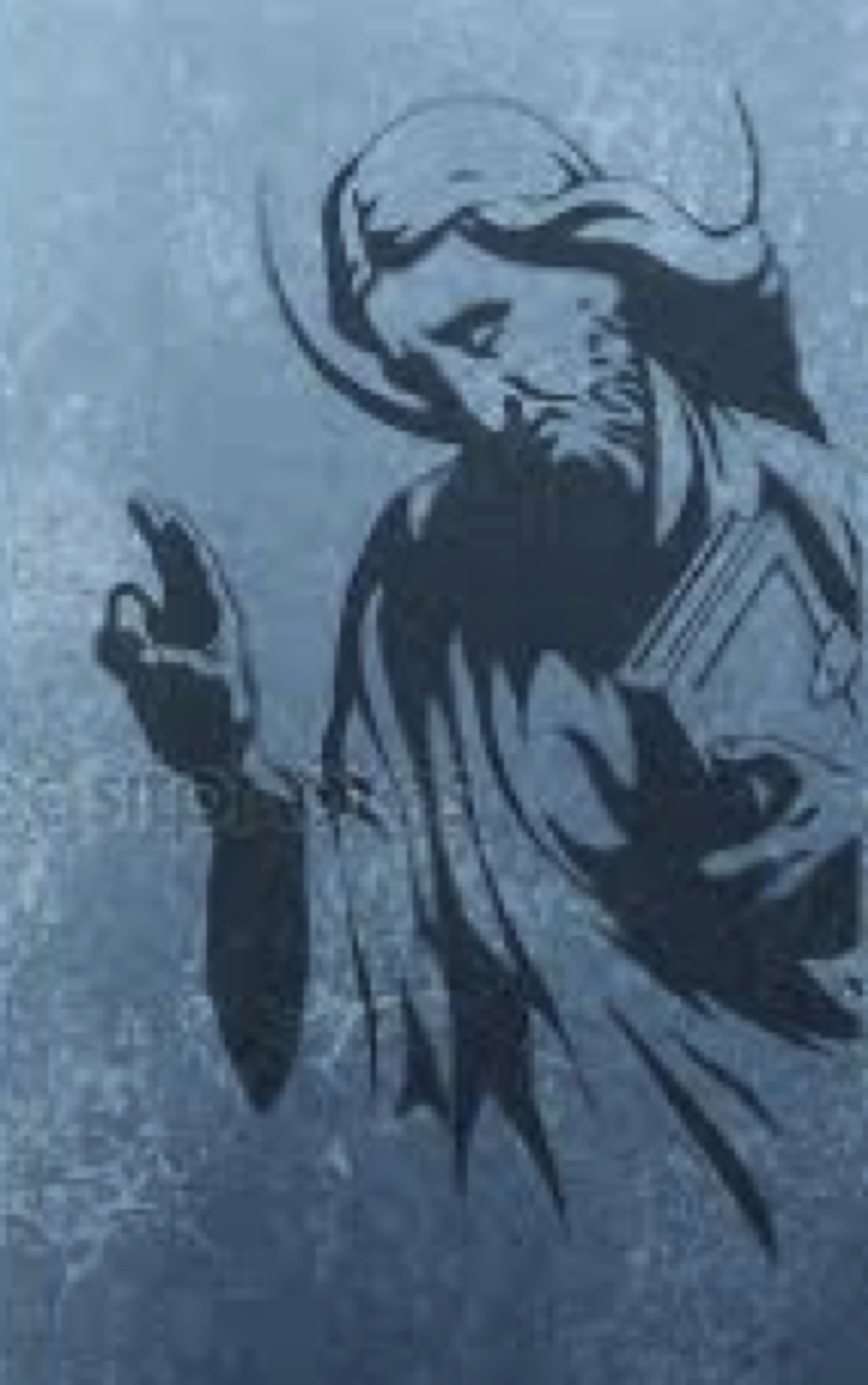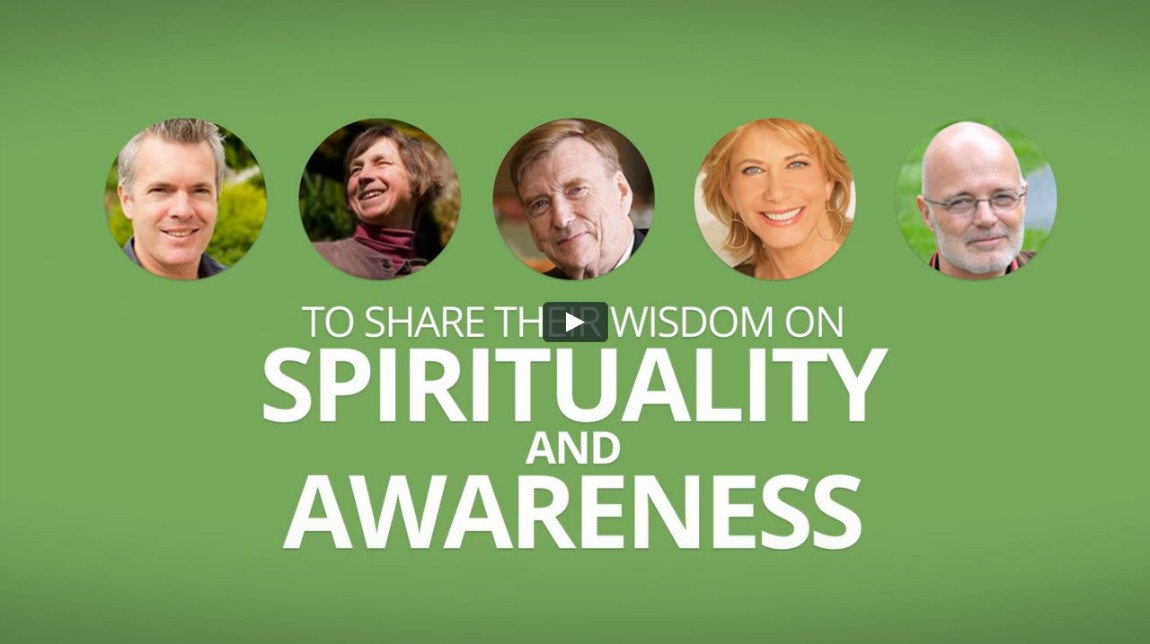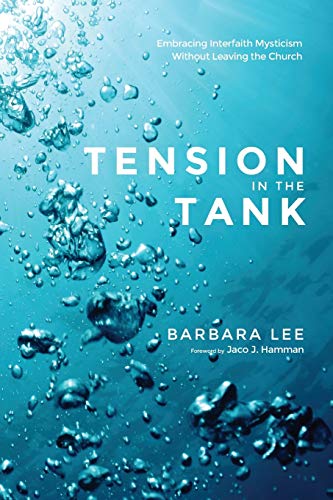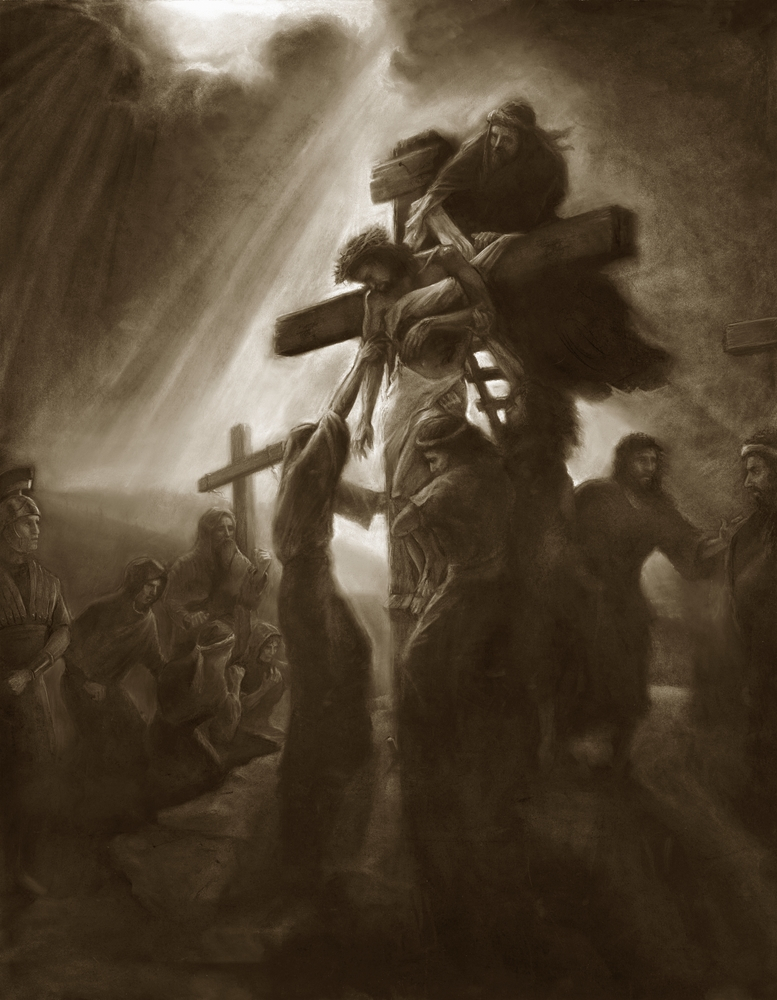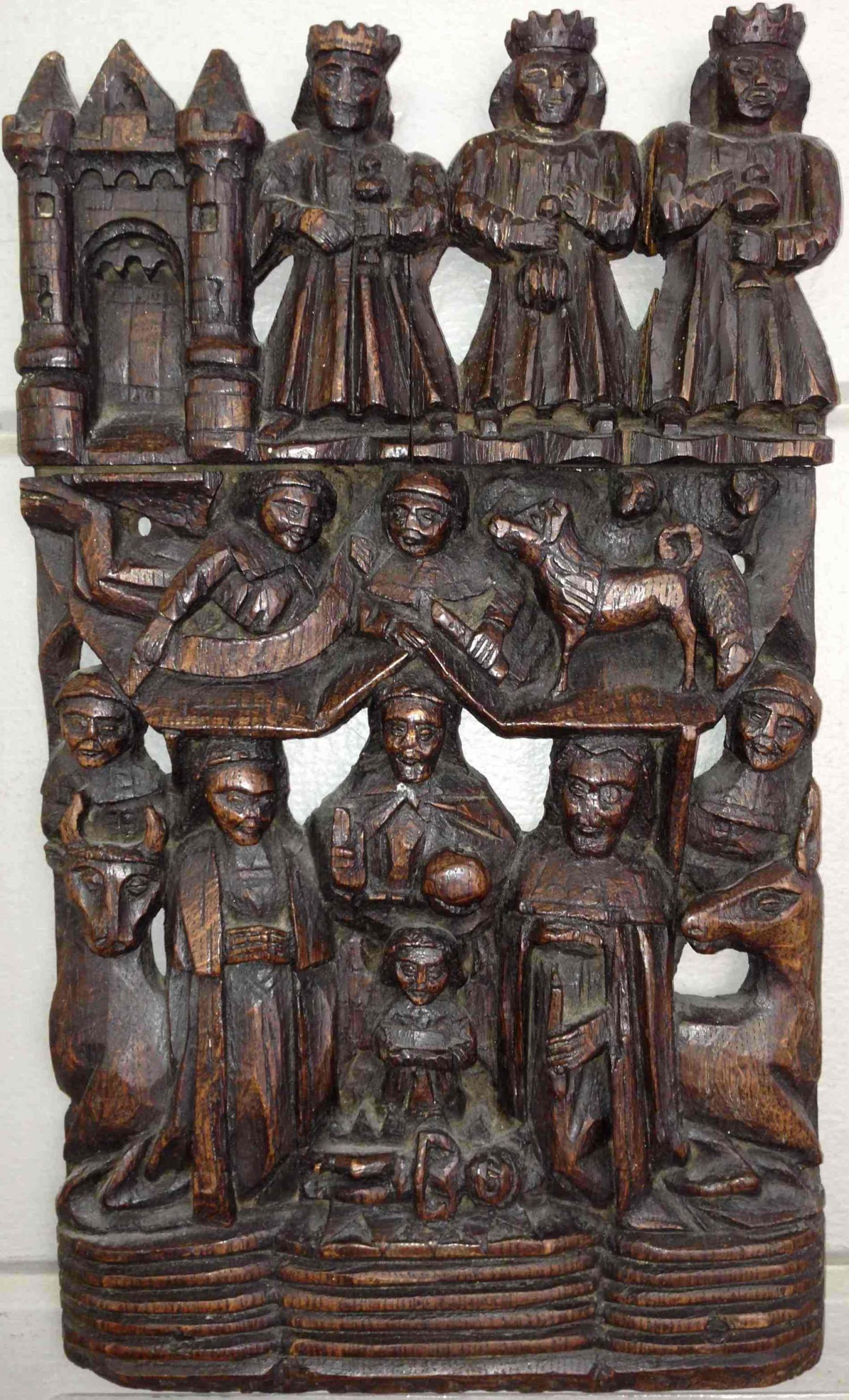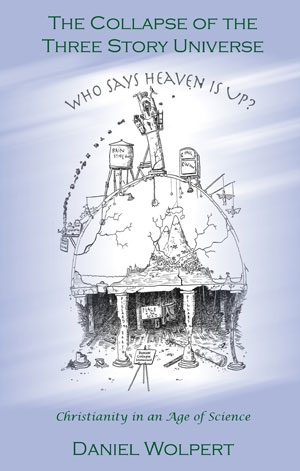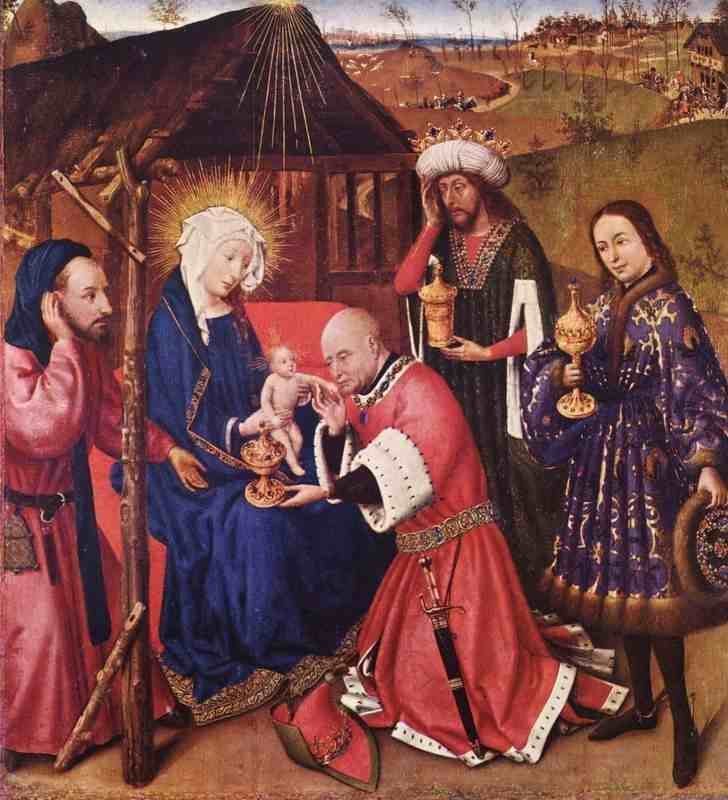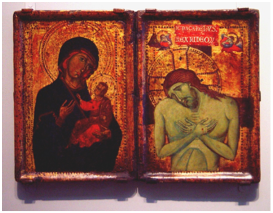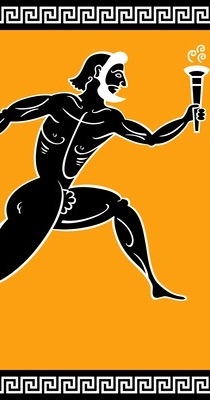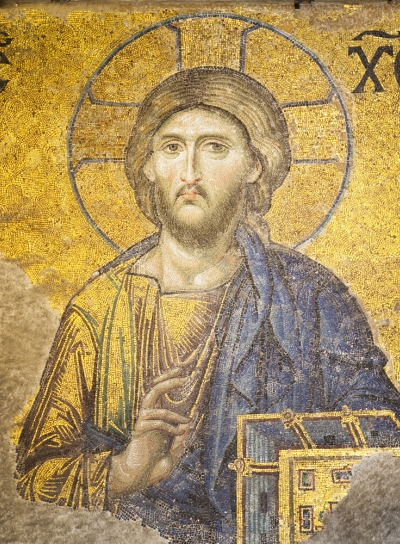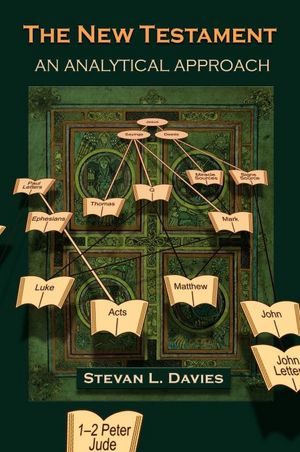The Problem with Blessings and Curses
“Have a blest day?” What in this world does that mean? Better luck or good karma, instead of bad? In the ancient world, denoting someone as “blest” was a way of expressing a deity’s special favor towards that person. If that sounds quaint, there are still plenty of people today who believe they can curry favor or improve the odds of achieving more blessings than curses; while politicians routinely conclude their speeches by invoking the Almighty to bless the good ‘ol USA. There’s just one problem. It doesn’t work.
They said I was… a radical. a liberal. anti-American. a tree hugger. a peacenik. a socialist. a progressive. But I was just following
The bumper sticker that jokingly says, “God loves us all, but I’m His favorite,” points to a much bigger problem that absolutely ruins
This might sound rather odd coming from somebody who identifies herself as a contemplative Christian, but I just have to say the whole theological premise that Jesus died on the cross to save us from our sins never made sense to me. I know some Christians might say it’s not suppose to make sense. That’s where faith comes in. However, I don’t think faith has to be illogical. There’s a certain divine logic driving everything.
“Cognitive dissonance…" I’ve heard that phrase several times over the years. But, it was only a few months ago that I took the
In this article, I would like to point out 3 crucial problems that arise when one begins with “plain truths” about the book rather than the Christ, the Logos, the “structuring principle of reality.” (John 1:1–5)
A Thanksgiving Reflection in the Midst of a Terrorized World
Like many others, the Thanksgiving holiday is another reason I love the autumn season. The occasion gives us the allocation of a few fleeting moments to pause and express appreciation for whatever we have, but only for the time being. In a world either terrorized or abused by those who have little regard for it, it has become downright dangerous and nearly complicit, to encourage the illusory notion of any sweet by-and-by; expecially for those who can’t seem to wait for it. If there is to be any knockin’ on heaven’s door, the place is always here, and the time is always now. Since none of us can imagine with any certainty whatsoever that unknown reality from whence we have all come, all we can really know is what is. And, considering all those most authentic, very earthy and non-religious parables Jesus used to try to describe a “reign of God” – or, if you prefer, “kingdom of heaven” – they all seemed to be very much of this earth, and the stuff of daily life. I do not believe in any afterlife of my own. And I’m done with any notion of a heaven that is anywhere else than on the face of this earth; with whatever we make of it, and for the time being. The poet, Robert Browning, once wrote, “Ah, but a man’s reach should exceed his grasp, or what’s a heaven for?” The painfully obvious fact that we have so utterly failed to grasp such a paradise, does not yet mean we should hold back our reach of it.
Ian interviews 31 experts including Bishop Spong and Matthew Fox
Beyond all the things that divide us, both from ourselves and each other, awareness brings us back to our essential oneness. In June 2014, Ian Lawton, founder of soulseeds.com, had a series of transformative conversations with renowned spiritual leaders from many traditions on the topic of awareness. Whether you caught the conference live or not, you can now access any or all of it in the way that best suits you.
Ultimately, Tension in the Tank is about faith that is relevant, secure and ever-evolving. It is a guidebook for building meaningful relationships with Spirit, self and each other. Radically open to possibility and wonder, Tension in the Tank offers the opportunity and challenge to live our faith in such a way that the walls between us come down and we become pursuers and enactors of universal justice.
During the fourth century, Christianity digressed from the concept of one God into the vague and mysterious doctrine of the Trinity. The Catholic Church reportedly devised the Trinitarian doctrine to answer the charge of worshipping three gods – God the Father, God the Son, and God the Holy Ghost. Trinitarianism became a part of the Roman Catholic doctrine as a result of the first ecumenical council of Nicaea in 325 CE.
We need to acknowledge that the final week in Jesus’ life is a blending of separate biblical accounts. In other words, the story grows and develops as each successive gospel writer imaginatively retold the story. There may be some historical memory in their stories, but the details are not historical.
Judas Iscariot, the anti-hero of the story of the crucifixion, has been heaped with scorn and ridicule over the centuries. “Judas” is not used as a child’s name because it became the synonym for betrayal, for being a back-stabber. In Christian art, he is portrayed in dark, sinister tones. Events in western Christian history from the Inquisition in the fourteenth century to the expulsion of the Jews from almost every country of Europe at one time or another, to Martin Luther’s call for the burning of synagogues, to the violence and killing frenzy of the Holocaust in the twentieth century are all rooted substantially in Judas and because he was a Jew, applied to all Jews. Even his name is identical with the name by which the entire Jewish nation was known… Judas is simply a Greek spelling of Judah.
Contrary to the custom of the period, Jesus accepted women among his followers. Although none of the women are ever identified as “disciples,” certain gospels passages indicate that some of them may have been equal to the disciples, particularly Mary Magdalene. Mark writes that women followed Jesus in Galilee and ministered to him (Mark 15:40-41). Like Mark, Matthew 17:55 refers to women who “followed Jesus from Galilee, ministering to him.” Luke 8:1-3 mentions that Jesus and the disciples were accompanied by women and he specifically mentions Mary Magdalene, Joanna, the wife of Herod’s steward Chuza, Susanna, and many others, “who provided for them out of their own resources” (meaning that they must have had considerable wealth). Jesus’ death and the events accompanying it mention the presence of women and some of those women witnessed the crucifixion, Jesus’ burial and the discovery of the empty tomb. Pope Benedict XVI considered it an obvious fact that “many women were also chosen to number among the disciples.”
Click Here to Download this Study Guide. Books / Material Covered in this Study Guide: How to Know God by Deepak Chopra
Francis Macnab has been teaching the place of Faith in psychology and theology, in health and growth for decades. He claims that the churches have lost vast numbers of people because their Old Faith has lost empathy and relevance in the 21st Century. He advocates the need for a New Faith.
“Christian” A-theism Series, Part III
Part III of this "Christian" A-theism Series explores new possibilities to be found in pushing beyond the constraints of theism and a-theism; and the blunt and limited question of believing or not believing in a “theistic” notion of “God.” We typically fashion our notion of anything we deem sacred “Oneness” in anthropomorphic terms, so we can more easily relate to the idea. The Christian then proceeds to incarnate that God notion with a Christology in which Jesus is construed as a co-eternal mediator and – peculiarly – a substitutionary sacrifice. But for those progressives for whom such a construct is no longer viable or credible, what might still be found amidst the theological rubble in a post-modern – even post-deconstructionist – age? Indeed, what may have been there from the start of the entire imaginative process; known in the earliest days of a pre-Christian movement simply as the Way? As near as we might be able to discern it with our own creative and interpretive imaginations, what resemblance might it bear to the “voice-print” of an extraordinarily imaginative character we might want to befriend?
Part One in this series considered the notion of “God,” or “gods,” as the single most elusive idea the human imagination has ever concocted or tried to fathom. But we typically constrain ourselves, thinking only in theistic terms; and fashion our notion of “God” in an anthropomorphic image so we can more easily relate to the idea. We ascribe to such a being all kinds of desirable characteristics that might comprise this composite character. The Christian then proceeds to incarnate that idea with a Christology in which Jesus is typically construed as mediator and chief negotiator; to the extent such a savior is willing to atone for all our wretchedness and secure our own immortality in another existence. It’s all pretty fanciful stuff. But for those progressives for whom such a construct is no longer viable or credible, it is not simply a question of what remains amidst the theological rubble, but what more, or other, might yet be discovered? As such, we ask how we might speak of such things. What language might we use?
World-renowned Jesus scholar Marcus J. Borg shows how we can live passionately as Christians in today's world by practicing the vital elements of Christian faith.
The purpose of this book is to try and present a series of images that will allow us to understand how it is
A Reflection for Twelfth Night and the Epiphany Season
The journey of the magi, and their adoration on bended knee before a newborn peasant who presumably comes to subordinate the Herod’s of this world is a quaint and fanciful tale. But this year, the real exchange of gifts in the City of Angels was a modern day epiphany that suggest we might indeed still find for ourselves new, authentic life in such an otherwise arcane myth. Now the question is whether the meaning and message of Epiphany season will truly shed new light in the bleak midwinter of our discontent.
Visit Bruce's Site on Evolutionary Christianity This will be the first Christmas Eve in twenty-seven years that I’m not preaching. I confess to
A Christmas Requiem for Sandy Hook
Why -- despite popular Christianity’s doctrinaire explanations -- was a Galilean peasant child’s fate sealed even before he drew his first breath? Was
Jerusalem, Now and When?
Why would a Jewish American doctor risk serving the medical needs of Palestinian children in the occupied territories of the West Bank?
Many Christians I know vote based on a single issue, usually abortion. Now I don’t want to get into the pro-choice, anti-abortion, debate. I understand that if the point of conception is the beginning of life, pro-choice does not feel like a viable option. But I believe that the question for a Christian-motivated voter is not as simple as a candidate’s stance on abortion. The question should be: How Christ-like is my candidate?
Jesus' Way of Confounding the Trophy-centric Ways of this World
The ancient Olympic games were a series of athletic competitions between city-states. The results determined who were the winners, and who were the losers. But during the games, any conflict between the warring states was forbidden. If ever there was a time when that Olympic torch should be lit and never be extinguished, perhaps this is it. But how? It seems international good sportsmanship inside the stadium can only be assured by heavy security on the outside; where unruly competing self-interests would seek to turn winning at all cost into a blood sport. The previous Words & Ways commentary explored a foolish kind of wisdom once espoused by a Galilean sage through his teaching, the parables he told, and even the seeming absurdity found in his miracles (see "The Foolishness of Jesus"). It is this same Jesus tradition that also proposes such counter-cultural notions that one can “win by losing," and “the last shall be first." Here's John Bennison's latest commentary from Words & Ways.
Wisdom & Foolishness in the Perennial Tradition
Wisdom is often mistaken as knowledge, prudence or pragmatism; whereas foolishness is equally regarded sometimes to be the kind of fool-hearted thing Jesus would have characteristically espoused with many of his confounding ideas about God, God’s ways and how we ought to treat one another. Truth be told, there are plenty of people who consider themselves much too smart to take seriously some of the darn fool things Jesus actually said and meant. But Jesus was no ordinary fool. A Words and Ways Commentary by John Bennison.
In The Watchman’s Rattle, sociobiologist Rebecca Costa argues that civilizations collapse because they reach a cognitive threshold, a level of complexity that overwhelms
Davies does not presuppose students knowledge of biblical text or points of view, and he carefully explains topics such as how New Testament authors selected, edited and embellished sources to address concerns raised by their various communities.
Somewhere between zen and folktales, somewhere between child's play and wisdom, somewhere between dreaming the world and healing it. Read these stories aloud - to your child, to your love, or to yourself beneath a sacred tree.

